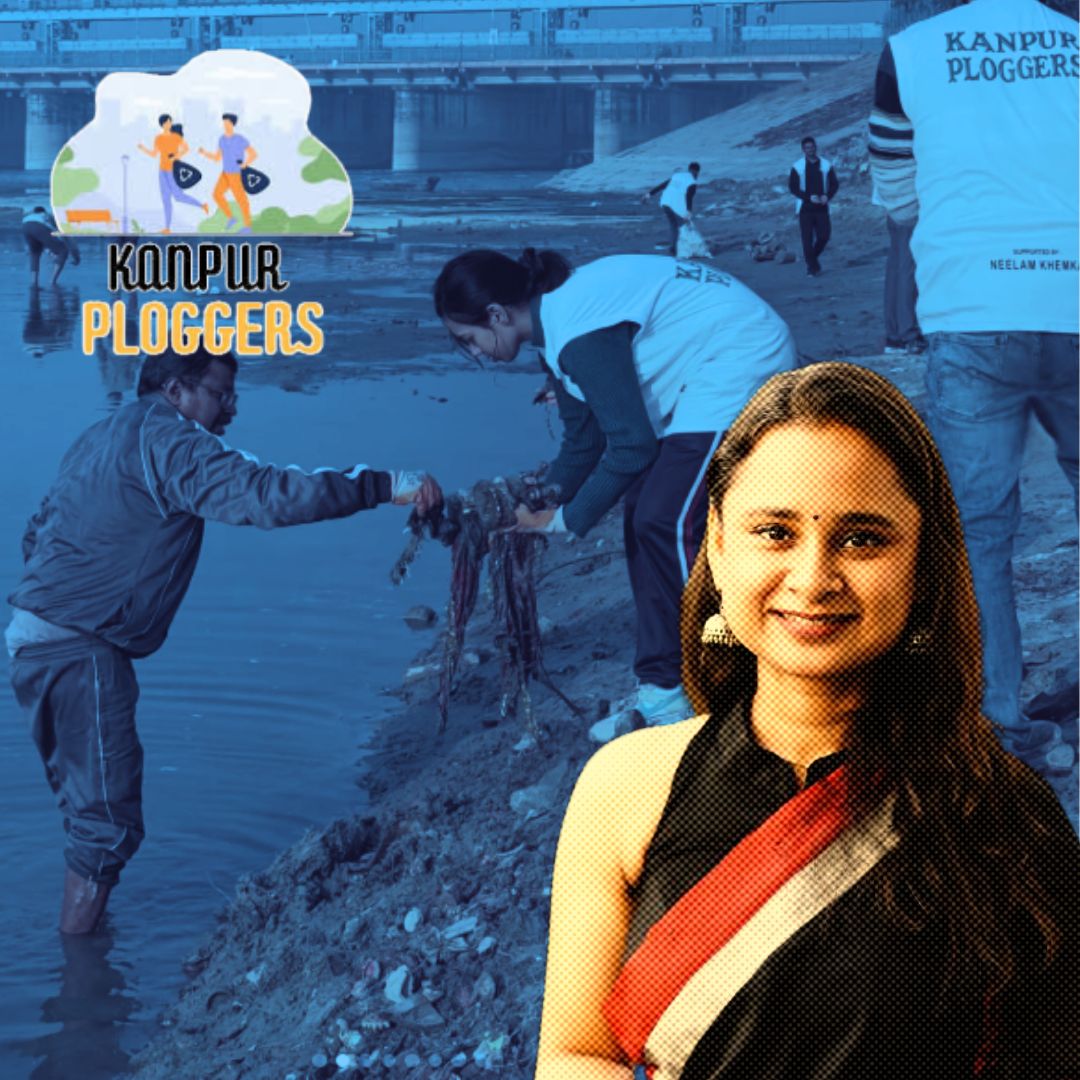In an era where environmental sustainability is paramount, Project Sankalp, spearheaded by the Kanpur Ploggers, emerges as a powerful initiative aimed at tackling fabric waste while empowering women and promoting eco-friendly practices. Launched on Single Use Plastic Prevention Day, this project has quickly gained momentum, resonating with the local community and drawing national attention.

The Vision Behind Project Sankalp
Launched on 3rd July 2023, Project Sankalp was conceived to address the pressing issue of plastic pollution and textile waste. The Kanpur Ploggers Foundation, founded by Dr. Sanjivini Sharma, a dentist by profession and an environmentalist by passion, initiated this project to educate the community about sustainable practices while providing practical solutions. Dr. Sharma’s commitment to environmental activism has been instrumental in shaping the foundation’s mission and outreach efforts.

Key Objectives of the Initiative
1. Reducing Fabric Waste: At the heart of Project Sankalp is the objective to reduce fabric waste by upcycling old clothes into reusable jholas (cloth bags). This not only diverts textiles from landfills but also promotes a culture of sustainability within the community.
2. Empowering Women: A significant aspect of the project is its focus on women’s empowerment. By providing training in sewing and production techniques, Project Sankalp equips women with valuable skills that lead to sustainable employment opportunities. This empowerment not only enhances their financial independence but also uplifts their socio-economic status.
3. Promoting Eco-Friendly Practices:
The initiative encourages consumers to replace single-use plastic bags with eco-friendly jholas. Volunteers engage with local markets, distributing cloth bags and raising awareness about the environmental impact of plastic pollution.

Community Engagement and Activities
The success of Project Sankalp can be attributed to its robust community engagement strategies. The Kanpur Ploggers have conducted several awareness drives targeting local fruit and vegetable markets, where volunteers actively interact with shoppers. During these events, they distribute cloth bags and educate consumers about the benefits of reducing plastic usage.
As part of their outreach efforts, three major awareness and jhola distribution drives have been conducted since the project’s launch. Volunteers armed with posters and enthusiasm have successfully replaced numerous polythene bags with sustainable alternatives.

Recognition and Support
Project Sankalp has garnered significant recognition for its impactful work in promoting sustainability. Notably, Prime Minister Narendra Modi praised the initiative during his address on Mann Ki Baat, highlighting its role in cleaning local environments and fostering community involvement in conservation efforts.
The Kanpur Ploggers Foundation operates with a mission to raise awareness about sustainable practices and inspire community participation in environmental initiatives. Their work has not only encouraged residents to reduce plastic use but has also fostered a culture of recycling and sustainability within Kanpur.

Future Prospects
Looking ahead, Project Sankalp aims to expand its reach beyond Kanpur by collaborating with other NGOs and community organisations across India. By sharing best practices and resources, the initiative hopes to amplify its impact on fabric waste reduction and women’s empowerment on a larger scale.
The Logical Indian’s Perspective
At The Logical Indian, we believe that Project Sankalp exemplifies how grassroots initiatives can drive meaningful change in society. This project not only addresses pressing environmental issues but also embodies our commitment to peace, dialogue, kindness, empathy, harmony, and coexistence. By empowering women and promoting sustainable practices, it fosters a spirit of collaboration that is essential for positive social change. As we navigate the complexities of our environment and society, initiatives like these remind us that every small action contributes to a larger movement for sustainability and equity.
How can we further support projects that empower local communities while addressing environmental challenges? We invite you to share your thoughts and experiences in the comments below!












